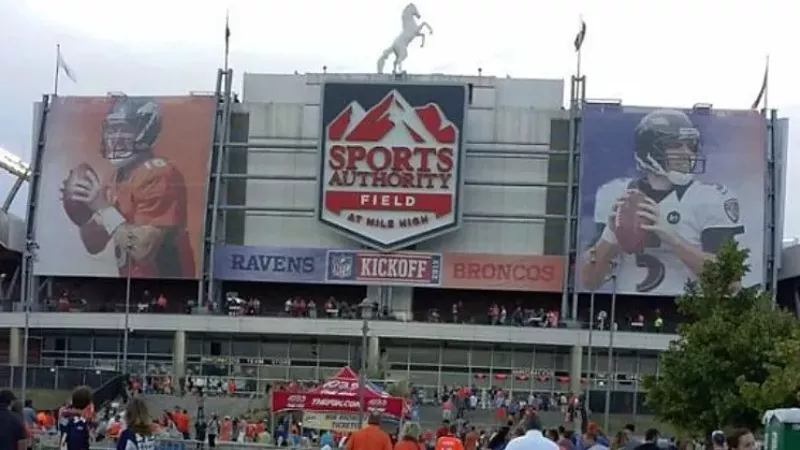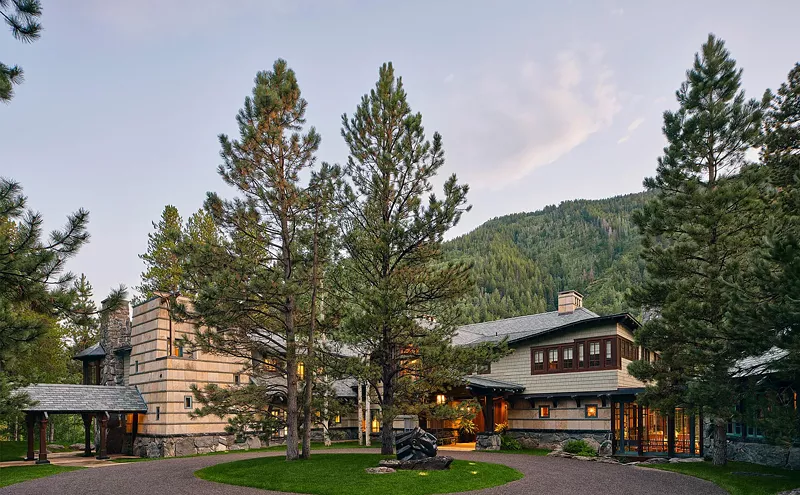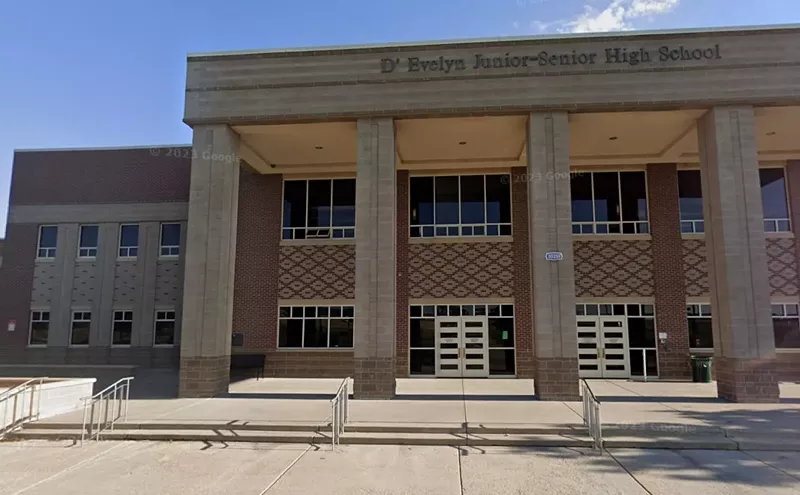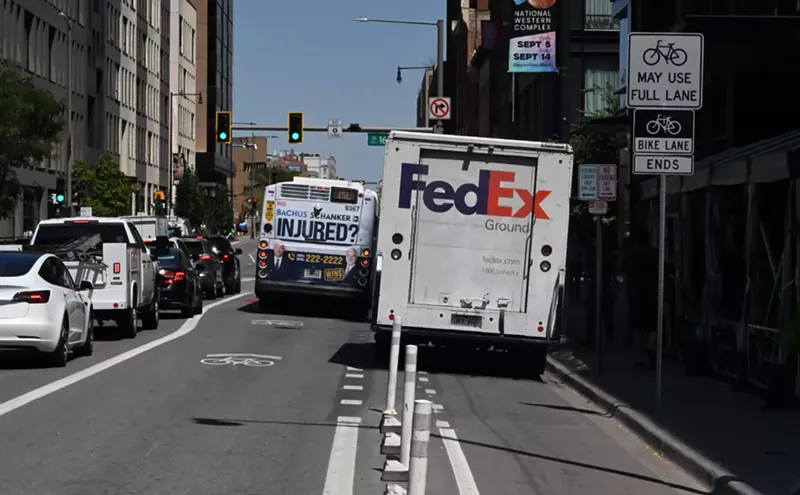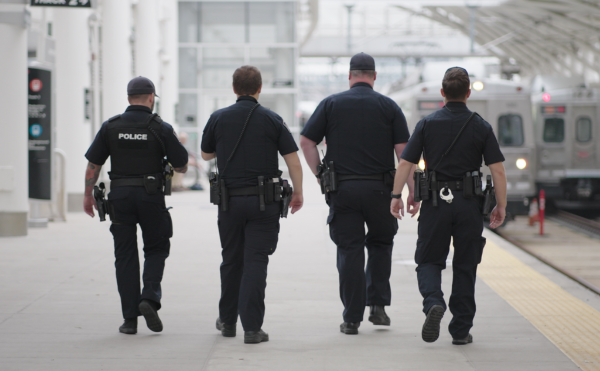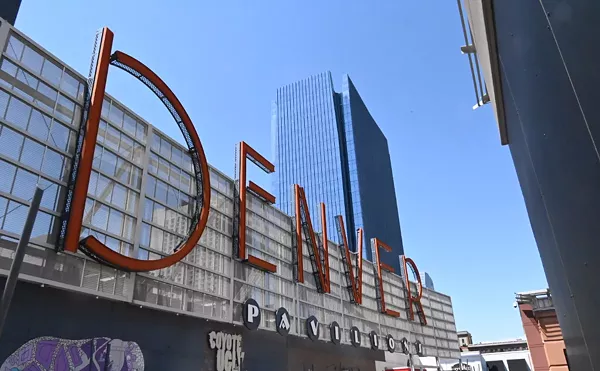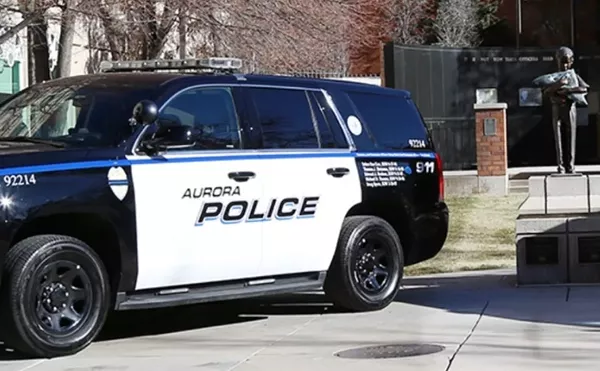"I remember doing interviews when Sports Authority put its name on the stadium," in 2011, says Darrin Duber-Smith, marketing professor and senior lecturer at Metropolitan State University of Denver. "My big warning was, 'I'm not sure Sports Authority is a big enough or healthy enough company to commit that much money from their marketing budget each year.' And I was right."
What went wrong? According to Duber-Smith, "I think the main thing is, they didn't have the money for leveraging" — essentially investing additional resources to maximize the impact of the firm's name on the stadium. "You're supposed to spend at least one time the amount of money you spent on the sponsorship on leveraging. So if the sponsorship deal's for $5 million, you need to have another $5 million per year."
After a pause, Duber-Smith asks, "How do we know this? We've been studying sponsorship for forty years. We know what works and what doesn't work. And what doesn't work is simply slapping your name on a stadium and then not having any money to reinforce that relationship in the mind of the consumer. That's what leveraging is. It's running ads, it's doing all kinds of things with that Broncos logo that reinforce the relationship in the mind of the consumer. What you're looking for is awareness among fans that Sports Authority is the sponsor of the Broncos. That's how you measure whether a sponsorship is effective or not."
Sports Authority didn't have the cash to leverage the stadium name because "they were never really healthy," Duber-Smith maintains. "The merger between Gart Brothers, our beloved Gart Brothers, and Sports Authority, which was a Florida company, really just resulted in kind of two garbage trucks colliding. It was a really unhealthy merger between two companies that I don't think really fit together culturally and never really hit the ground running."
While the Mile High naming deal made a big splash locally, the glow was temporary, Duber-Smith argues. "If you really want your sponsorships to fail, don't leverage. That's what Sports Authority did. They threw all their money at the sponsorship and had no money for leveraging, and they used the rest of the money they had to limp along. And they limped along for a few more years, but they only lasted for five more years after that venue rights agreement. It was the nail in their coffin, just as I predicted. And I would do it again, because this is science. You've got to be large enough to be able to afford the kind of long-term marriage that involves literally $10 million a year plus all the leveraging and all the other stuff you're doing."
That $10 million figure is Duber-Smith's best guess for what the Broncos would like a company to pay per annum for stadium naming rights over the length of a contract that would ideally last for two decades. It's a high price, but "naming rights are a really big deal. It's for the big dogs. It's not for the little pups on the porch. And Denver's problem is, we don't have a lot of big-dog companies based here. We have a lot of secondary campuses here in Colorado, but we don't have a lot of corporate headquarters. And when you look at the list of corporate headquarters, how many companies do you see that are large enough to spend $10 million a year on that stadium for twenty years?"
Possible answers to that question include Coors and DaVita — but Coors already has its name on a local stadium (Coors Field, home of the Colorado Rockies) and is going through a merger, Duber-Smith points out, while DaVita doesn't make sense because of its specialty, kidney dialysis. Moreover, Duber-Smith doubts other significant Colorado companies, including Crocs and Otter Box, could pull off such a hefty transaction.
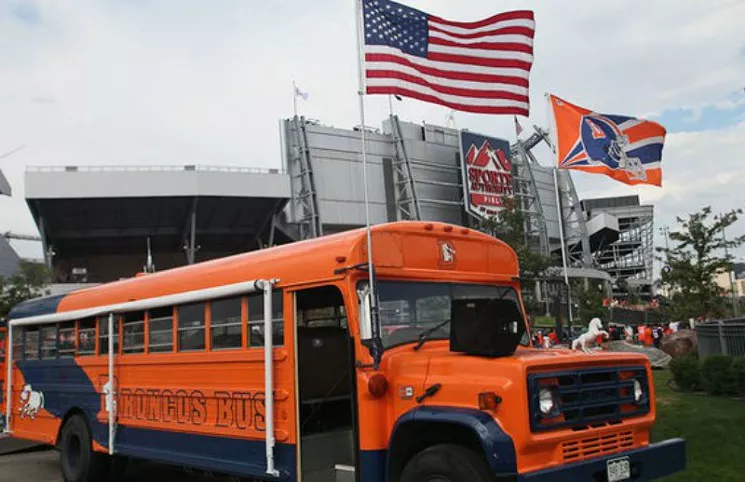
It's too soon to tell how soon the Sports Authority sign will be replaced by another company's logo.
Photo by Brandon Marshall
For that reason, Duber-Smith feels the type of business most apt to make such an investment is a national outfit that might have a reason for wanting to increase the size of its footprint in Denver.
As for the Broncos, they have incentive aplenty to ink a pact before the season starts.
"The main thing is, they want to get the Sports Authority name off the stadium," he stresses. "The only thing worse would be to leave it blank. They really don't want to do that, because fans don't understand that in 2017, you need to have a venue-naming rights partner. It's not going to be Mile High Stadium; they don't want people to get used to having no [sponsor] name on the stadium. And people shouldn't want that, either, because the ticket prices would go up. Broncos ticket prices aren't that high compared to a lot of the league, and the venue naming-rights partner softens the blow for consumers."
With that in mind, Duber-Smith expects the name on the Broncos' stadium to change before long, even if the last company to see its logo on the side of the place may have gone bust because of it. And that might not be the only area venue to wind up switching monikers in the near future. The current $68 million/$3.4 million annual naming-rights contract for the Pepsi Center, home to the Denver Nuggets and the Colorado Avalanche, is set to expire in 2019, and we hear Pepsi may not be all that excited about re-upping....

